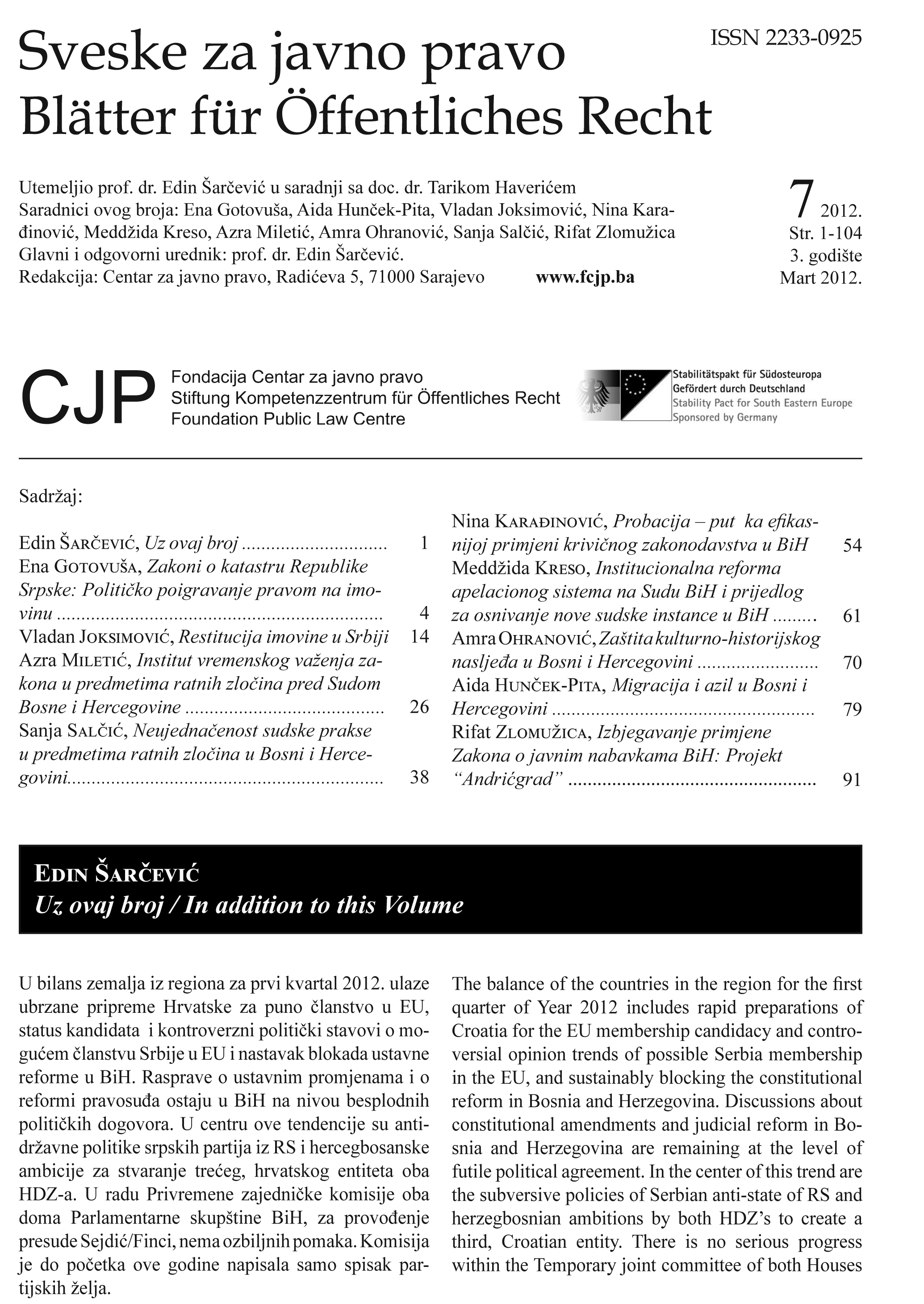Institut vremenskog važenja zakona u predmetima ratnih zločina pred Sudom Bosne i Hercegovine
Institute of time-constrained law in War Crimes cases before the Court of Bosnia and Herzegovina
Author(s): Azra MiletićSubject(s): Law, Constitution, Jurisprudence, Criminal Law, EU-Legislation
Published by: Fondacija Centar za javno pravo
Keywords: Bosnia and Herzegovina; Dayton Peace Agreement; Law; War Crimes; Court;
Summary/Abstract: When it comes to Bosnia and Herzegovina, the applicability of the Criminal Code may be characterized as a first-class legal issue, particularly as regards war crimes and other cases of gravest breaches of international humanitarian law currently being prosecuted. It has been in the focus of interest of not only the legal community, primarily because two quite different regimes or approaches to the application of criminal codes in such cases have been on the scene, depending on whether a criminal case is prosecuted by the Entities’ judiciary or the Court of Bosnia and Herzegovina. As to the comparison between codes, sometimes several codes, two principles on which it is based should be taken into account: the principle of concreteness and the principle of alternativity. Both principles are sometimes differently perceived in theory. At the time when the Dayton Peace Agreement was signed, B&H was not a signatory state to the Second Optional Protocol to the International Covenant on the Civil and Political Rights at the international level as prescribed by the Optional Protocol II, and was not obliged to make reservations to the Protocol. Therefore, Article 2 of the Optional Protocol II constituted no obstacle to the existence of death penalty in the B&H legislation during the period from the signing of the Dayton Peace Agreement until the adoption of new criminal legislation.
Journal: Sveske za javno pravo
- Issue Year: 3/2012
- Issue No: 7
- Page Range: 26-37
- Page Count: 12
- Language: Bosnian, Croatian, Serbian

